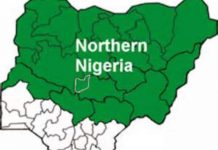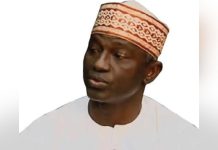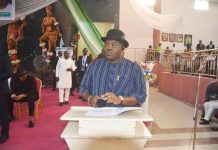How did we get here? $76 billion in loans and still counting? We managed to escape a life of borrowing in 2006. We were down to $6 billion in total exposure, home and abroad. But no sooner had Okonjo-Iweala completed the deal which saw Nigeria coughing out $12 billion to her foreign friends, than we started digging the hole again.
A coin dropped the moment I saw that picture posted by Senator Ben Murray-Bruce, in which he posed with the old, retired chairman of the Federal Reserve, Alan Greenspan, and boasted about how the Atiku team was contacting the man to come and assist them in turning the Nigerian economy around. It was a major fiasco, and evidence of the delusions, as well as disconnection of the Atiku group from current realities, alongside deep misunderstanding of what is required to bring economic succor to our long-suffering people. Before that unfortunate picture, which plays into a brand of colonial mentality (believing that white men are the only ones who can save us), as well as a heartless adherence to liberal economics (in a country where almost 90 million people live in extreme poverty), alarm bells had been sounding about the Atiku campaign – what with the way all his dreams are built around privatisation, public-private partnerships (PPPs), individualism and entrepreneurship. For anyone who does not know, Greenspan was basically disgraced at the end of his otherwise illustrious tenure as the U.S Fed. chairman. His unshaking belief in self-regulation of the market was his albatross.
Buhari – Economy Has Failed, More Trouble Ahead
But perhaps the Atiku delusion may be better than the tragedy we have at hand already, and even though I believe I have offered the best ways out for our people, it seems that the minds of majority have been captured. On Friday December 14, President Buhari announced to state governors – most of who have stashed billions of naira away in different places – that Nigerians need to tighten their belts, as the economy is in bad shape and that there is the need to think of new ways out of the situation. True to himself, he laid the blame on the 16 years of Peoples Democratic Party (PDP) rulership and also the usual invocation of Nigeria producing 2.1 million barrels of crude oil per day and selling for an average of $100 in the PDP years (not true because at the tail end of the Obasanjo regime and until Yar’Adua reached a peace deal with militants, production dipped to almost 800,000 barrels per day, and certainly the average price of crude oil in that period was much lower than $100). The president, like most other people of ‘influence’, in and out of government, has ignored analyses that show that crude oil isn’t worth this almost eternal, total emphasis and reliance on. For a product which you cannot manufacture on your own, of which almost 50 per cent is the cost of production, for which the world has found alternatives, and for which there are other products that your people have been producing for ages which give much higher returns on investment, anyone who encourages crude oil as the pivot for this economy is simply a non-patriot. Even if we were bewitched, hypnotised and sedated, there comes a time when we must unshackle our minds from toxic habits. Now is the time.
Balance of Payment and Current Account Crisis
But the worst is yet to come. Buhari actually stated additionally on December 14 that from the look of things, the situation will get worse. We know for whom it usually gets worse. The Central Bank of Nigeria recently released highlights of the national balance sheet. In it we found out that Nigeria’s current account balance (CAB), for the third quarter ending September 30, 2018 had swung into a huge negative position of $3.3 billion, from a positive position of $4.45 billion as at June ending. The figure in the corresponding period last year was in positive territory to the tune of $1.97 billion. Similarly but without cheer, Nigeria’s balance of payment (BOP) went into a deficit of $4.5 billion, down from a positive $503 million, where it had been as at June 30, 2018. The previous year, that current account was in a positive territory of $2.8 billion. Nigeria is said to have incurred new financial liabilities to the tune of $10.9 billion, as against $2.6 billion, for the preceding period (June 30, 2018). Some of us had always warned that under Kemi Adeosun, what we had was almost criminal economic management, for we were just using loans to paper over serious economic cancers. The chicken has now come home to roost. But Buhari cannot feign ignorance. This is what he has foisted on the Nigerian people.







